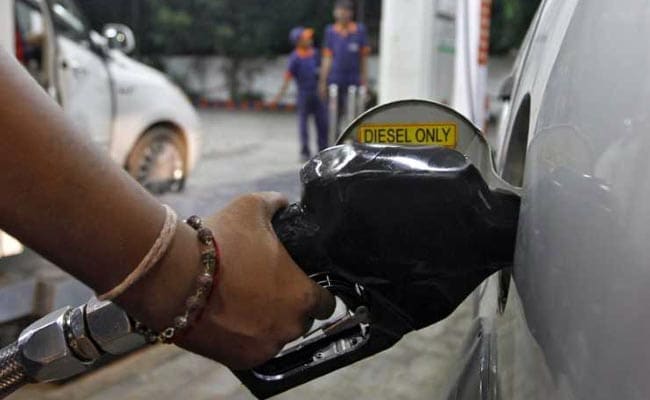
The government is likely to intervene to bring down the rising prices of petrol and diesel, sources said. Petroleum Minister Dharmendra Pradhan will meet representatives of the oil companies this evening after which prices may be reduced, sources said. Petrol prices rose again this morning, marking the ninth straight day of oil price hike and bringing the government under sharp opposition attack. Petrol is now Rs 76.87 a litre in Delhi. In Mumbai, it is Rs 84.70 - a record high. The opposition has accused the government of failing to provide relief to the common man by cutting excise duty.
Here are the top 10 facts in this big story:
Although the finance ministry said there is little room for cutting excise duties at present, the petroleum ministry said it is trying to get some concessions, which will depend on clearance from PM Modi.
"I accept that citizens of India and especially middle class, suffer due to the fuel price hike. The government will soon come out with a solution," Oil Minister Dhamendra Pradhan has said. While he did not elaborate on the means, there are only two options - cutting on excise duties, which would mean revenue loss for the government, or asking the oil companies to bear the loss.
The opposition parties, along with the Congress, accuse the government of raking in profits through inflated excise duties at the cost of the common man. In Mumbai, 60 per cent of the money consumers pay per litre is taxes, which is divided between the Centre and the state. In Delhi, the corresponding figure is 46 per cent.
Various industry bodies have also asked the government to urgently reduce fuel excise duties. "Unless swift action is taken to address the situation, the economic growth will again head towards a speed-breaker. Among the most immediate actions that can be taken by the government is to bring down the excise duty on fuel," industry body Ficci President Rashesh Shah said yesterday.
A section of opposition parties have demanded that the government scrap excise duty on petrol and diesel and bring them under its flagship Goods and Services tax. "How long will they continue to hike prices of petrol and diesel? Why don't they cut excise duties?" former union minister P Chidambaram said. "Why doesn't the BJP government bring petroleum products under GST?" read another of his tweets.
If the highest slab of GST - which is 28 per cent - is imposed, the price of petrol will come down to just Rs 56 in Delhi. But cutting across political lines, no government has been interested in reducing excise on oil because of the revenue it brings.
Opposition parties have also accused the government of playing politics with oil prices, selectively keeping the price down. After a 19-day gap in the run-up to the Karnataka elections, which were held on May 12, state-run oil companies began raising oil prices.
Oil minister Dharmendra Pradhan has blamed the price rise on less production in oil-cartel OPEC nations. In December, for the first time in eight years, OPEC nations agreed to cut down output, which triggered rise of crude oil prices in the international market. The US decision to re-impose sanctions on Iran further affected prices.
India imports 80 per cent of the oil it needs and the weakening of the rupee against the dollar has further upped what it has to pay.
The price of petrol was deregulated in the country in June 2010 and diesel in October 2014, tying them up with international prices that are revised every two weeks. The government has ruled out reverting to subsidy, indicating it is consumed by those who can afford to pay more.

